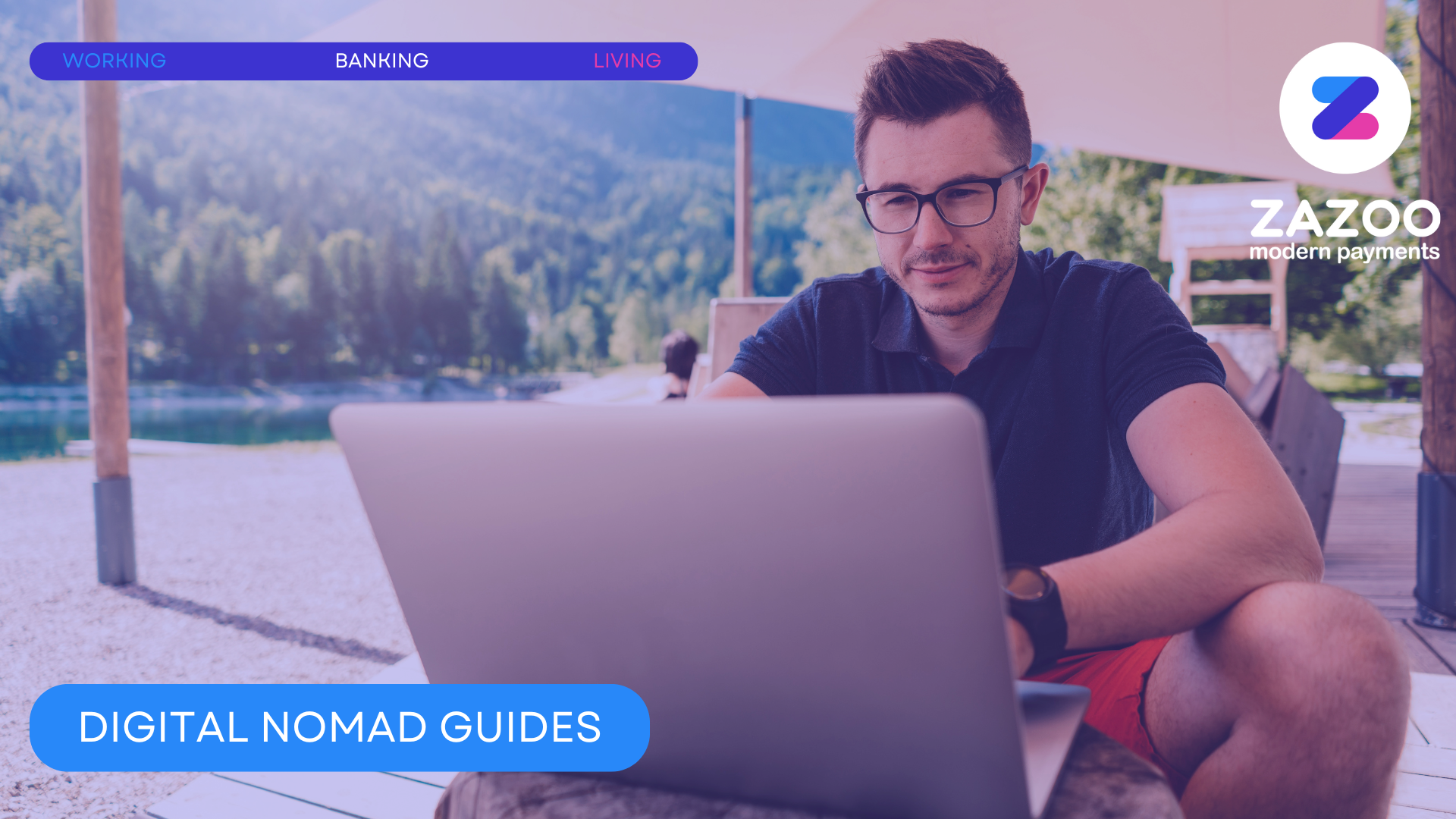The Complete Guide to Being a Digital Nomad in Cape Town, South Africa (2024)
1. Why Cape Town?
Cape Town, located on the southern tip of Africa, is one of the most stunning and diverse cities in the world. Known for its beautiful beaches, majestic Table Mountain, and a unique blend of cultures, Cape Town has become a popular destination for digital nomads seeking adventure along with affordable living. Cape Town offers a slower pace of life compared to other major cities but doesn’t compromise on modern infrastructure, with a fast-growing tech scene, trendy coworking spaces, and plenty of natural beauty to explore during downtime.
Cape Town’s affordability, breathtaking scenery, and friendly local community make it ideal for nomads who are looking for a balance between work and play. English is widely spoken, the city has a vibrant expat and nomad community, and its variety of lifestyle options—from beachside living to mountain hikes—creates a well-rounded experience for remote workers.
2. Visa Options for Digital Nomads
South Africa does not have a specific digital nomad visa yet, but there are several options available for remote workers to stay legally in Cape Town:
- Tourist Visa: Many nationalities can enter South Africa on a 90-day tourist visa, which can be extended for another 90 days. This is a common option for digital nomads who want to stay in the country for up to six months. Extensions can be tricky, so it’s best to plan ahead if you wish to extend your stay.
- Business Visa: If you have a business or intend to start one in South Africa, you can apply for a Business Visa. This visa is more complex and requires investment into the South African economy, but it allows for longer stays and official business operations.
- Digital Nomad Visa (Proposed): While South Africa does not yet offer a specific digital nomad visa, there has been growing discussion about introducing one to attract more remote workers. It’s worth keeping an eye on developments, as such a visa would likely streamline the process for digital nomads wanting to live in Cape Town long-term.
For up-to-date visa information and to apply, visit the South African Department of Home Affairs.
3. Local Sentiment Towards Digital Nomads
Cape Town has long been a melting pot of cultures, and the influx of digital nomads has been generally positive for the local economy. Many South Africans are used to seeing expats and remote workers in areas like the City Bowl, Green Point, and Sea Point, where a large number of cafes, coworking spaces, and international restaurants are located.
However, it’s important to be mindful of Cape Town’s economic inequality. While digital nomads bring money into the local economy, rising rents in desirable areas can make housing less affordable for locals. Contributing positively by engaging with local businesses, learning about South African culture, and participating in community initiatives will ensure a more balanced relationship with the local population.
4. Best Locations for Digital Nomads
Cape Town is divided into several districts, each with its own distinct vibe. Here are some of the best neighborhoods for digital nomads:
- City Bowl: The heart of Cape Town, the City Bowl is nestled between Table Mountain and the harbor, offering a mix of modern office buildings, cafes, and coworking spaces. It’s a lively area popular among both locals and expats. Rent prices in the City Bowl range from ZAR 8,000 – ZAR 20,000/month (€400-€1,000 or $420-$1,050 USD).
- Sea Point and Green Point: Both neighborhoods are located along the Atlantic coast and are popular with expats and digital nomads for their proximity to the beach and scenic promenade. They are also home to trendy restaurants, cafes, and coworking spaces. Rent in Sea Point and Green Point ranges from ZAR 10,000 – ZAR 25,000/month (€500-€1,250 or $525-$1,310 USD).
- Woodstock: An up-and-coming neighborhood just outside the city center, Woodstock is known for its industrial-chic vibe, artsy markets, and coworking spaces. It offers a more budget-friendly alternative to the City Bowl, with rents ranging from ZAR 6,000 – ZAR 15,000/month (€300-€750 or $315-$780 USD).
5. Internet and Coworking Spaces
Cape Town’s internet infrastructure has improved significantly in recent years, with fiber internet widely available in central areas. However, power outages (known as load shedding) are common in South Africa, so it’s important to have a backup plan for when the power goes out. Many coworking spaces have generators or battery backups to keep you working through outages.
Here are some top coworking spaces in Cape Town:
- Workshop17 (V&A Waterfront): Located in the scenic V&A Waterfront, Workshop17 is one of Cape Town’s most popular coworking spaces, offering stunning views of the harbor and Table Mountain. Memberships start at ZAR 3,000/month (€150 or $158 USD).
- Inner City Ideas Cartel (City Bowl): A high-end coworking space with multiple locations in the City Bowl, offering sleek interiors and strong networking opportunities. Memberships start at ZAR 2,800/month (€140 or $147 USD).
- The Bureaux (Woodstock and Sea Point): Offering flexible coworking options across different locations, The Bureaux is known for its collaborative environment and creative community. Memberships start at ZAR 2,500/month (€125 or $130 USD).
6. Cost of Living
Cape Town is affordable compared to most major cities in Europe and North America, though prices can vary depending on your lifestyle and choice of neighborhood. Here’s a typical breakdown of monthly expenses for digital nomads:
- Rent: ZAR 6,000 – ZAR 25,000/month, depending on the neighborhood and apartment size (€300-€1,250 or $315-$1,310 USD).
- Groceries: Expect to spend around ZAR 3,000 – ZAR 5,000/month (€150-€250 or $158-$260 USD).
- Eating out: Meals at local restaurants range from ZAR 50 – ZAR 150 per meal (€2.50-€7.50 or $2.60-$8 USD), while dining at a mid-range restaurant can cost around ZAR 200 – ZAR 400 (€10-€20 or $10.50-$21 USD).
- Coworking spaces: Monthly memberships range from ZAR 2,500 – ZAR 3,500 (€125-€175 or $130-$185 USD).
- Transportation: Uber and Bolt are popular in Cape Town, with rides within central areas typically costing between ZAR 40 – ZAR 100 per ride. Renting a car is also affordable, with prices ranging from ZAR 4,000 – ZAR 8,000/month (€200-€400 or $210-$420 USD).
7. Healthcare and Safety
Cape Town offers both public and private healthcare, with private hospitals offering a higher standard of care. Expats and digital nomads typically opt for private health insurance, which is affordable and offers quick access to high-quality services. Insurance costs typically range from ZAR 500 – ZAR 1,500/month (€25-€75 or $26-$79 USD), depending on the level of coverage.
While Cape Town is generally safe for expats and digital nomads, it’s important to be cautious, especially in certain areas. Like any big city, petty crime such as pickpocketing can occur, and some neighborhoods are more prone to crime than others. Stick to well-lit, busy areas, especially after dark, and consider using rideshare apps for safe transportation.
8. Currency and Exchange Rate
The local currency in South Africa is the South African Rand (ZAR). As of October 2024, the exchange rates are approximately:
- €1 = ZAR 21
- $1 = ZAR 19
Here’s a comparison of local costs:
- Rent in Sea Point: ZAR 15,000/month = €715 or $790 USD
- Coworking space at Workshop17: ZAR 3,000/month = €150 or $158 USD
- Groceries: ZAR 4,000/month = €190 or $210 USD
9. How Zazoo Helps Digital Nomads in Cape Town
Zazoo simplifies financial management for digital nomads living and working in Cape Town. With multi-currency accounts, you can hold, exchange, and transfer funds in South African Rand, Euros, US Dollars, and more—all with competitive exchange rates and no hidden fees. Whether you’re paying rent, managing freelance income, or sending money back home, Zazoo ensures your finances are handled securely and efficiently, so you can focus on enjoying life in Cape Town.
Want to be the first to know when we go live? Pre-register now to get early access to Zazoo’s digital banking solutions and stay updated on our official launch. Manage your finances effortlessly, wherever you are!








